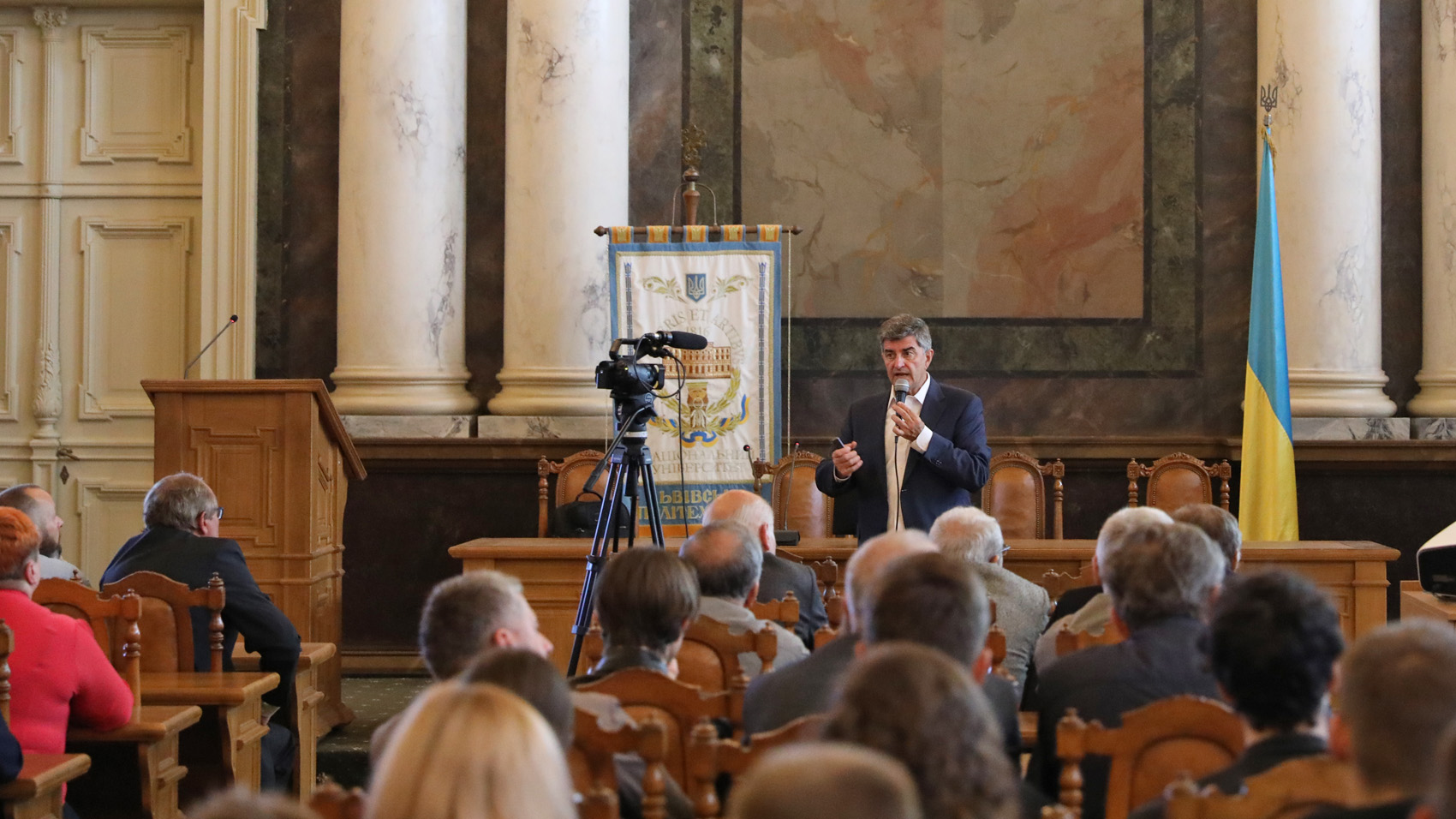On September 16, Lviv Polytechnic National University hosted a scientific conference with the participation of Professor Yury Gogotsi, a prominent Ukrainian-American scientist in the field of chemistry, materials science and nanotechnology. Prof. Gogotsi is the founder and director of the A.J. Drexel Nanomaterials Institute and a professor at the Department of Materials Science and Engineering Programs at Drexel University. In 2022, he was recognized as a «highly cited researcher» by Clarivate in the categories of chemistry and materials science, making him one of the top 3% of the most cited scientists in the world.
The conference featured a lecture by Professor Gogotsi entitled «Two-dimensional carbides and nitrides (MXenes) for advanced technologies». Yury Gogotsi’s team made a major breakthrough by discovering MXenes, a new class of materials that can be designed at the atomic level to perform specific functions. MXenes are the latest two-dimensional materials composed of carbides and nitrides that today can form the basis of future technologies. Due to their unique properties, these materials have enormous potential for use in various industries, including energy, electronics, and medicine.
Prof. Gogotsi believes that Ukraine has unique opportunities for MXenes research, as it is one of the world’s leading suppliers of titanium, one of the main elements needed to create new materials.
– Ukraine has a unique opportunity to shift from traditional metals to titanium-based MXenes, emphasized the professor.
Yury Gogotsi also noted that Ukraine has always had strong schools of materials science, particularly in Lviv, Kharkiv, Kyiv, and Dnipro. According to the professor, this knowledge and traditions create a solid foundation for the study and the development of new materials.
One of the first companies to produce and sell MXenes is Carbon Ukraine – the Kyiv Center for Materials Science. Professor Gogotsi emphasized the importance of creating small high-tech companies that could use research to rebuild Ukrainian industry.
One of the most promising areas of MXenes application is medicine. Prof. Gogotsi shared his views on the opportunities that are opening up for Ukraine in this area. He spoke about the research being conducted in cooperation with Sumy State University, including the use of MXenes to create biosensors that can help in medical diagnostics.
– In 5–10 years, MXenes can replace traditional laboratory diagnostics, said Yury Gogotsi.
The professor also noted that these materials can be useful for the military who have been injured at the front. Thanks to their electronic and ionic conductivity, MXenes can promote nerve regeneration, which can change the lives of many wounded. In addition, MXenes can be used for photodynamic therapy in the treatment of cancer and for other medical needs, such as tissue replacement.
After the lecture, Yury Gogotsi addressed postgraduate students and young researchers with a number of tips based on his many years of experience in science. He emphasized that it is important to believe in your ideas and strive to change the world through scientific discoveries, even if it does not always give an immediate result.
– If you want to develop materials that will change the world, you have to believe in yourself and your ideas, said Prof. Gogotsi, adding that you need to critically review the work you have done, even if it is recognized as correct and successful, and be ready to look for new areas of research.
